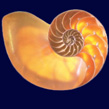
G I U G N O 1 9 9 6
![[PRIMA PAGINA]]( ../images/primapag.gif)
![[IN PRIMO PIANO]]( ../images/primopi.gif)
![[ATTUALITA']]( ../images/attualit.gif)
![[POLITICA]]( ../images/politica.gif)
![[ECONOMIA]]( ../images/economy.gif)
![[ESTERI]]( ../images/esteri2.gif)
![[SPORT]]( ../images/sport.gif)
![[CULTURA]]( ../images/cultura.gif)
![[CULTURA]]( ../images/arte.gif)
![[CULTURA]]( ../images/cinema.gif)
![[CULTURA]]( ../images/musica.gif)
![[CULTURA]]( ../images/moda.gif)
![[METEO]]( ../images/meteo.gif)
![[METEO]]( ../images/salute.gif)
![[GASTRONOMIA]]( ../images/gastrono.gif)
![[OROSCOPO]]( ../images/oroscopo.gif)
![[ANNUNCI]]( ../images/annunci.gif)
![[ESTERI]](../images/estelogo.gif)
![[IRELAND1]](ireland1.gif) If there was a winner it was Sinn Fein, the political wing
If there was a winner it was Sinn Fein, the political wing of the IRA, which substantially increased its vote and picked
up 17 seats in the new 110 seat forum which is due to begin talks on the future of the province on June 10.
The Ulster Unionist Party topped the poll to take 30 seats, followed by Ian Paisley’s fundamentalist Democratic Unionists (24) and the main nationalist party, the SDLP (21). The moderate Alliance Party took seven seats. Despite its success doubts remain as to whether Sinn Fein will be able to take its place at the table. Both the British and Irish prime ministers, John Major and John Bruton, insist that there can be no talks with Sinn Fein until the IRA restores the cease-fire broken earlier this year after a year and a half of peace. And in any case, DUP leader, Ian Paisley, has said that he will not sit down with the party.
However, the party’s success in the election may strengthen the hand of Sinn Fein leader, Gerry Adams, in getting the cease-fire restored. The fifteen percent of the electorate who voted for Sinn Fein are certainly not all supporters of IRA violence and the party’s increased vote may be seen as support for Gerry Adam’s attempts to solve the Northern Ireland conflict by peaceful means, allowing him to persuade the IRA leadership that there is a ground swell among republican sympathizers in favour of a democratic solution to the conflict which has beset the province for over a quarter of the century.
While Sinn Fein is very satisfied with the outcome of the poll, a poll which both it and the other main nationalist grouping, the SDLP, did not want and considered a delaying tactic on the part of the British government, the other main parties were less so.
The SDLP accused Sinn Fein of electoral fraud in nationalist strongholds in Belfast and Derry, including threats and personation, while the main Unionist parties complained that seats were lost because of splits in the vote as the result of too many unionist parties being present. While gratified at retaining its position as Northern Ireland’s leading Party, UUP leader David Trimble expressed anger that the dispersion of unionists votes meant that Sinn Fein managed to take one of the seats in his own five-seat constituency. In the Derry constituency of Foyle, on the other hand, the presence of several small loyalist parties meant that the 25% of unionist voters failed to elect a representative for even one of the five seats, with three of them going to the SDLP and two to Sinn Fein. Even nationalist politicians expressed dismay that the city’s large loyalist community would not be represented at the forum.
The small Progressive Unionist Party and the Ulster Democratic Party, known to be close to the Protestant paramilitaries will be present at the forum with two seats each while a moderate Unionist grouping, the UK Unionist Party will have three. Two seats each will go to the cross-community Northern Ireland Women’s Coalition and the Labour party, while the Greens failed to take any seats.
![[IRELAND2]](ireland2.gif) Now that there can be no further excuses to delay all-party talks, it remains to be seen if the IRA cease-fire will be restored and if the British Government will adopt a more flexible stance on arms decommissioning, the main obstacles remaining in getting all the parties around the table.
And even if the talks do begin on June 10, doubts remain about the possibility of any kind of progress with the loyalist leadership still maintaining the "no surrender" stance which has dominated Unionist politics in Northern Ireland for the best part of the century.
Now that there can be no further excuses to delay all-party talks, it remains to be seen if the IRA cease-fire will be restored and if the British Government will adopt a more flexible stance on arms decommissioning, the main obstacles remaining in getting all the parties around the table.
And even if the talks do begin on June 10, doubts remain about the possibility of any kind of progress with the loyalist leadership still maintaining the "no surrender" stance which has dominated Unionist politics in Northern Ireland for the best part of the century.SEATS IN THE FORUM
Ulster Unionist Party 30
Democratic Unionists 24
Social democratic and Labour Party 21
Sinn Fein 17
Alliance Party 7
UK Unionist Party 3
Progressive Unionist Party 2
Ulster Democratic Party 2
Northern Ireland Women’s Coalition 2
Labour 2
Michael Friel